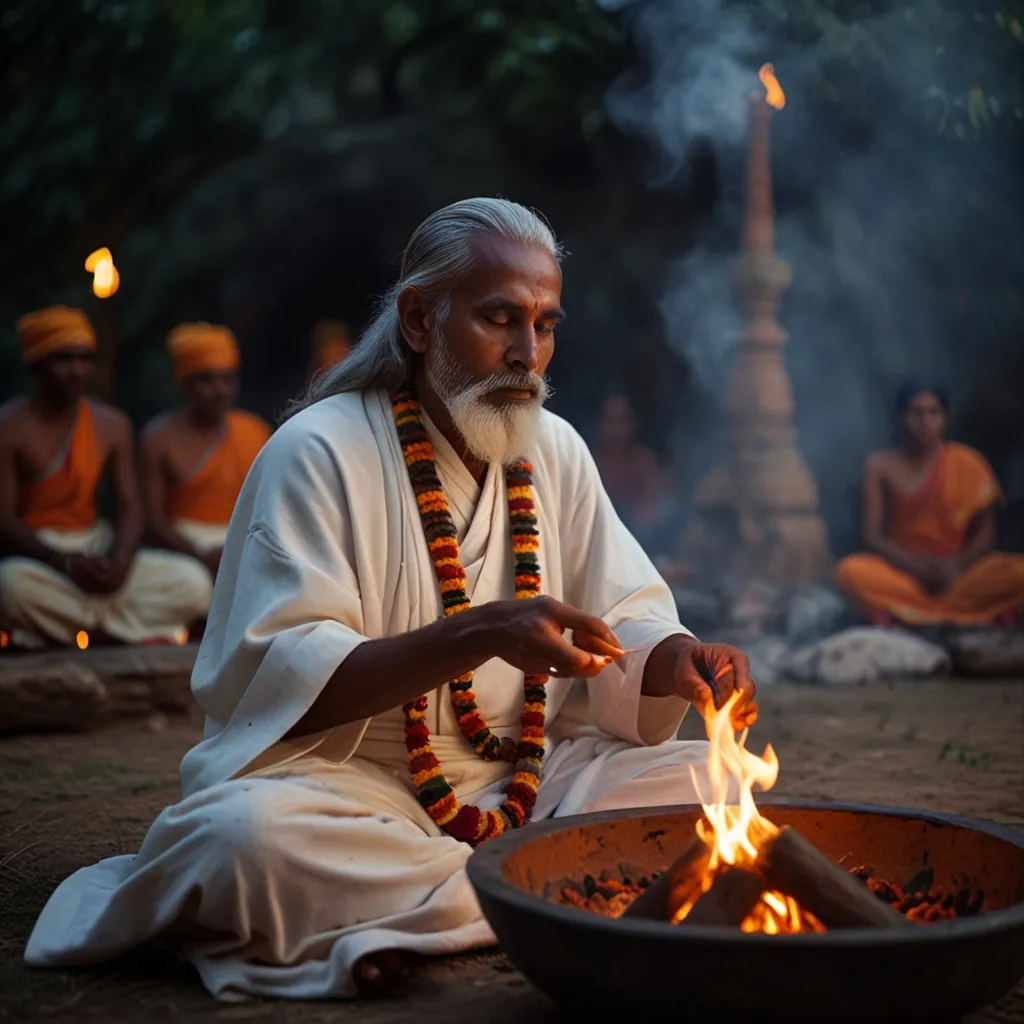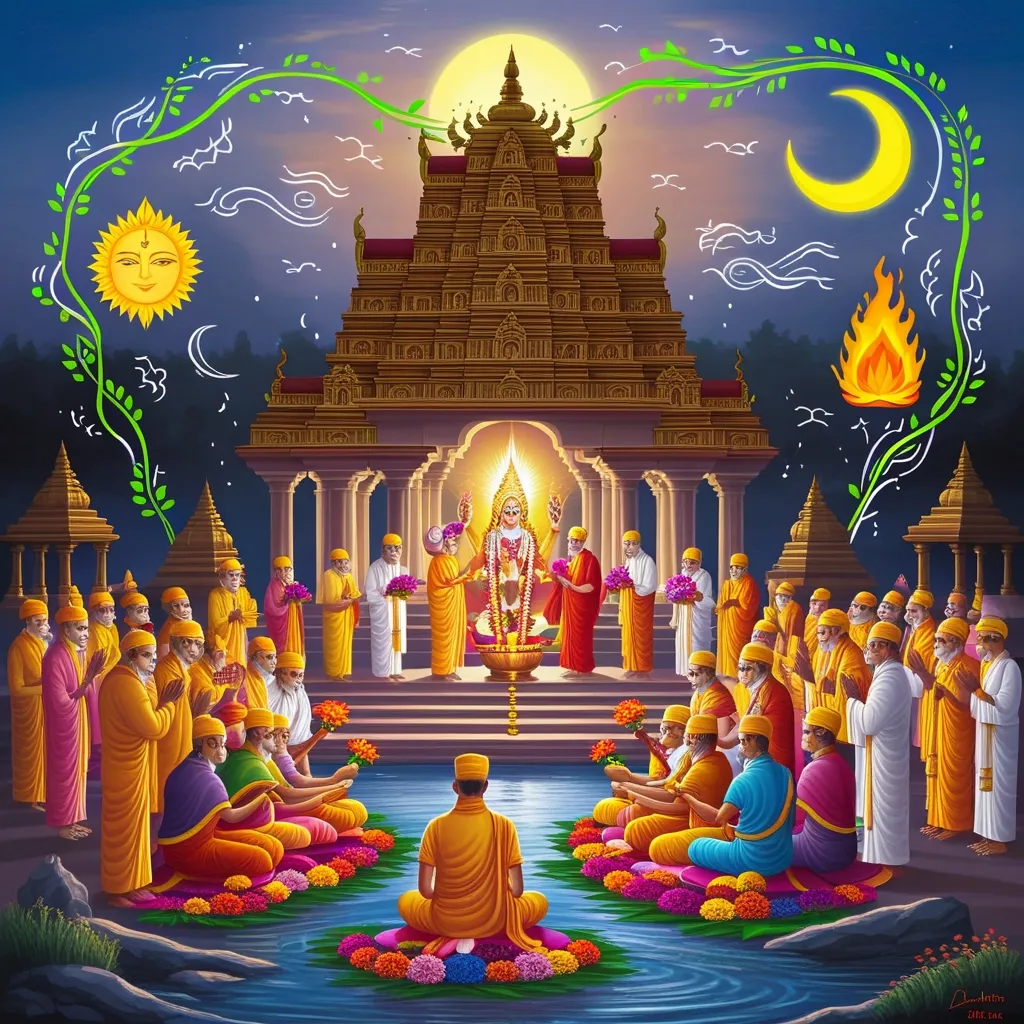The Yajur Veda is like a mystical treasure chest from ancient times, packed with Sanskrit mantras and verses. If you’re into Hindu worship and rituals, this one’s a cornerstone, just like the other big Vedas – Rig, Atharva, and Sama.
Breaking down its name, “Yajur Veda” stems from “yajus” (think worship or sacrifice) and “veda” (knowledge). So, it’s like the ultimate guidebook on sacrifice and worship.
Mainly, the Yajur Veda’s got the priests covered. It’s all about how to nail those religious rituals and sacred ceremonies. Picture a priest by the yajna fire; that’s where these mantras come into play. The priest who’s actually sweating over the details is called the adhvaryu, keeping everything on track by reciting from this Veda and divvying up tasks to everyone involved.
There are two flavors of the Yajur Veda: Shukla (white) and Krishna (black). Shukla’s got the prayers and step-by-step sacrificial how-tos. Krishna dives into the nitty-gritty of the rituals themselves. Back in the day, all this knowledge got passed down orally. Later, different schools (shakhas) tidied everything up, creating even more sub-divisions within the Vedas.
For the adhvaryu priest, the Yajur Veda’s like a ritualistic Swiss Army knife. Whether it’s picking the perfect plot for the sacrificial altar or offering stuff to the fire, this Veda’s got detailed instructions. But it’s not all about rituals. It delves into philosophical concepts like prana (life force) and manas (mind), and gives us a snapshot of what life was like for Vedic folks, even throwing in some geographical tidbits.
Looking for sacrifice details? This Veda’s got ‘em all – from Agnihotra to Ashvamedha. And for vivid descriptions, the Vajasaneyi-Samhita is the go-to. Plus, the last part of this Samhita includes the famous Ishavasya-Upanishad.
The core text dates back to the tail end of the 2nd millennium BCE, making it a bit younger than the Rigveda but still ancient. Scholars place most of its hymns in the early Iron Age, around 1200 to 800 BCE.
Yajur Veda’s all about those ritual-offering formulas, and its name breaks down to “yajus” (sacrificial prayer) and “Veda” (knowledge). So, it’s basically a knowledge book filled with prose mantras for Vedic rituals.
Interestingly, many of the Yajur Veda’s manuscripts haven’t been translated into Western languages. The most reliable ones out there are from the British India colonial era, like Keith’s and Eggeling’s translations.
In the grand scheme of things, the Yajur Veda is a monumental part of Hindu scripture. It lays down the foundation for classical Hinduism and stands as a treasure trove of ancient Indian history. For anyone digging into historical studies or even prepping for exams like the IAS, this Veda is a goldmine. It’s rich with knowledge on rituals, philosophy, and the daily lives of the Vedic people.






